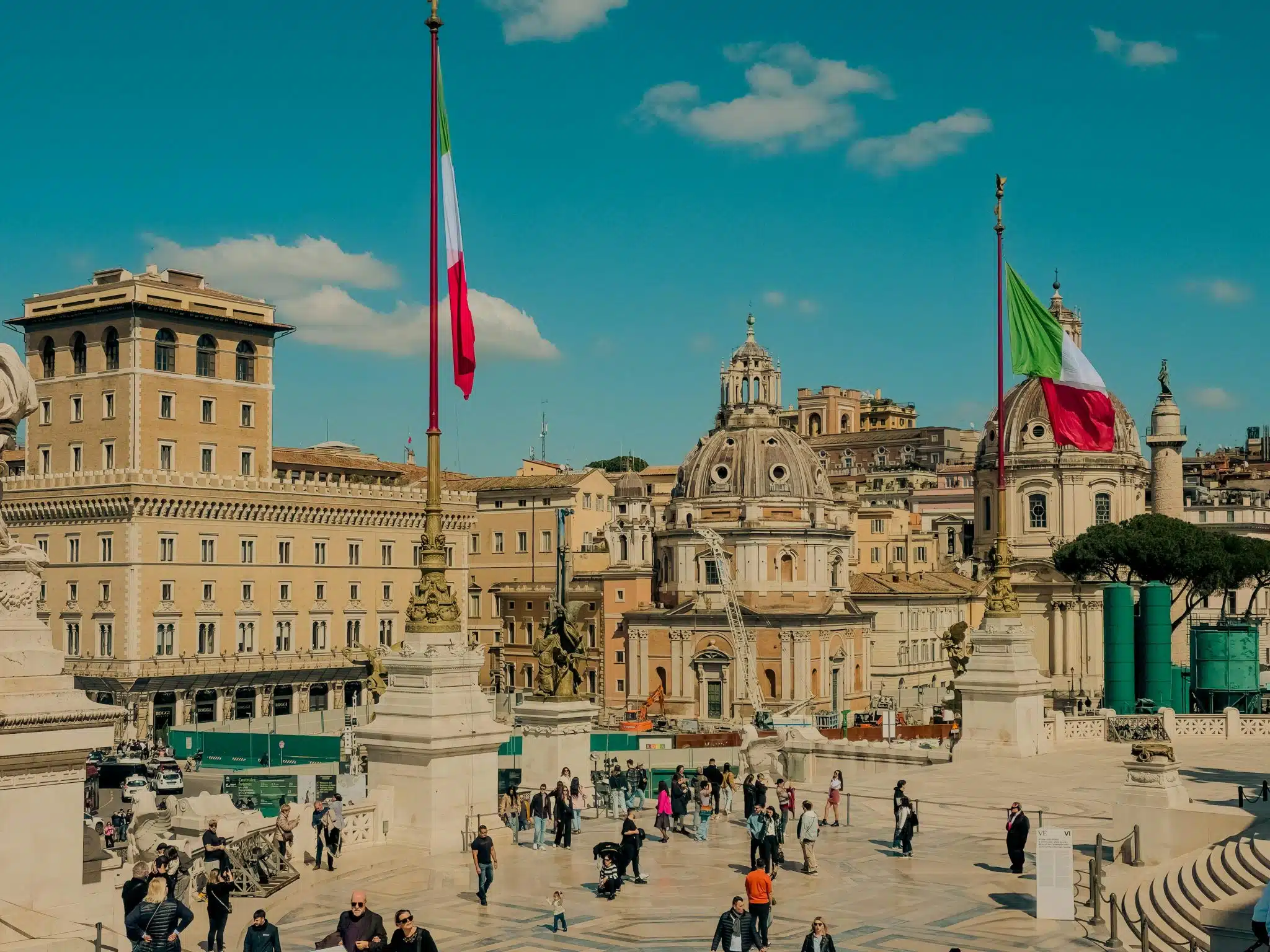Disqualified by the Recent Changes to Italian Citizenship? Court Appeals Could Be Your Way Forward
Author: Dr. Mark Masi
Background of New Italian Citizenship Law
On May 23, 2025 the Italian government approved a new law, Law 74/2025 which tightens the rules for people of Italian descent to be recognized as Italian citizens. This law was the result of the “Emergency Decree” also known as the “Tajani Decree” which was issued by the Italian Ministry of the Interior on March 28, 2025. Previously, anyone born in the US (or countries where birthright citizenship exists) whose immigrant ancestor was still alive after the Unification of Italy- March, 17, 1861 – could qualify for recognition as an Italian citizen under the “jus sanguinis”, or “right of blood” law provided that certain eligibility requirements were met. Under the new law the applicant must now have one immigrant parent or grandparent who was an Italian citizen by birth and maintained Italian citizenship exclusively, even if the naturalization took place after August 16, 1992 when Italian law permitted dual citizenship.
Five days later, on May 28, 2025 The Ministry of the Interior distributed Circolare No. 26185, providing operational instructions to the Consulates and Town Halls in Italy on how the law is to be interpreted and applied. In it we see that the eligibility requirement is worded slightly differently. It confirmed that citizenship can only be acquired through a parent or grandparent who was either Italian at the time of birth of the applicant or if deceased, maintained only Italian citizenship at the time of death. In consultation with our legal team, it appears that this slight variation will be corrected when the Consulates publish the new guidelines as the law is very clear about the parent or grandparent maintaining Italian citizenship exclusively, meaning never naturalized in another country.
At this time, the Consulates have not yet published their guidelines. We have reached out to all of the consulates with specific questions and those who have replied have not yet addressed this difference between the law and the circular. We have been advised that the new guidelines will be published shortly.
The abrupt changes in the law have had a significant impact on many Italian Americans who have spent considerable time and resources gathering documents and preparing their applications for Italian citizenship by descent. An overwhelming amount of conflicting information is being circulated online and across social media platforms, further adding to the confusion. Our recorded webinar below aims to provide clarity on the new law, outline who remains eligible under the revised criteria, and discuss potential pathways for those who may no longer qualify under the new rules. It also aims to offer hope and guidance to those who wish to continue pursuing their dream of obtaining Italian citizenship through their Italian heritage.
Individuals not-affected by Law 74/2025
Based on the Ministry Circular those applying at an Italian Consulate or Municipality are not affected by the new law if any of the following apply:
1. You are pursuing citizenship through a Via Materna court case. These cases fall under a constitutional law which transmitted citizenship through the paternal line only and have always been handled through the judiciary. This was determined in 2009 to be discriminatory against women by the Courts in Italy and citizenship was given to the descendants. Legal experts assert that the “via materna cases” are constitutional in nature so the new law does not exclude them in court.
2. Your application was submitted at the Italian Consulate, at an Italian Municipality, or in an Italian court prior to March 27 at 11:59 PM Rome time, even if you are making remediations.
3. You received notification from the Consulate prior to March 27, 2025 at 11:59 PM Rome time of a future appointment. These applications will be processed according to the former rules in effect prior to March 28, 2025.
4. You have a parent or grandparent who held only Italian citizenship at the time of your birth or held exclusively Italian citizenship at the time of their death. Exclusive Italian citizenship means that the parent or grandparent did not naturalize as a citizen in any other country. (If you do not qualify through your Italian born parent you cannot skip back to the direct line ascendant e.g. your grandparent even if he/she never naturalized.)
The new law does not allow minor children to be recognized at the same time that their parents acquire Italian citizenship.
Legal grounds to challenge Law 23 May 2025 n.74 for those who are affected
There are ways that you can challenge the law in the Italian courts if it disqualifies you. In this video Italian citizenship expert attorney Michele Ambrogio will provide you with the legal grounds for appealing the law based on its violation of constitutional rights.
In summary, if you are disqualified from applying for Italian citizenship under the new law you can proceed with an appeal in the provincial court from your Italian born ascendant on the following grounds:
1. Unreasonable and unequal treatment of individuals originating from administrative dysfunction of the Italian Consulates. If you have proof that you had unsuccessfully attempted to schedule an appointment at the Italian Consulate prior to March 27 at 11:59 PM Rome time, you could have grounds for challenging the new law in the Italian courts. Examples of proof include: attorney sollication, waiting list placement, emails from the Consulate stating that appointments were not available, screenshots showing that the booking was closed. The new law discriminates against those who could not obtain an appointment prior to March 28, 2025 due to unavailability of appointments and those who could get an appointment. A fundamental right such as citizenship cannot be based on the availability of appointment.
2. Retroactive Application of a New Law in breach of the principles of Reasonableness and Legitimate Expectation. Even if you were not in the process of trying to get an appointment you have grounds for challenging the new law on the argument that it introduces a whole new set of rules and derogates a former right given at birth. This blatantly goes against the provisions of the Italian civil code which states that “a law provides only for the future; it does not have retroactive effect.”
It should be noted that during the “Emergency Decree” a judge in Campobasso ruled favorably on a case using this principle. The judge ruled that the decree could not be applied retroactively, and only to those born after it.
3. Lack of the requirement of extraordinary necessity and urgency. The new law emerged from an Emergency Decree issued by the Italian Ministry of the Interior. To preserve the co-equal branches of government that are in place, emergency decrees are to be limited to extraordinary situations that pose an imminent threat to the country’s safety in which the normal parliamentary process would not have time to act to protect the Republic, e.g. a pandemic, a war, or national disaster. The introduction of the decree-law indicates the extraordinary necessity and urgency as being motivated by the need to prevent a ‘rush to the counters’ that could block the operation of consular offices, municipalities, and judiciary. Administrative inefficiency to respond to a backlog of appointments does not constitute a national emergency therefore the new law resulted from an illegitimate “Emergency Decree.”
4. Violation of European Union Law to preserve a stable and meaningful link to the country of origin. Any restriction must be proportionate, justified and respectful of human dignity. The law according to legal experts violates all three of these principles.
5. Via Materna Cases. These cases fall under a constitutional law which transmitted citizenship through the paternal line only and have always been handled through the judiciary. This was determined in 2009 to be discriminatory against women by the Courts in Italy and citizenship was given to the descendants. Legal experts assert that the “via materna cases” are constitutional in nature so the new law does not exclude them in court. In addition, the new law imposes generational and naturalization restrictions therefore all of the preceding arguments would apply to these cases.
Chances of Success with Court Appeals
Although the results of court cases challenging the new law are forthcoming, experts in Italian citizenship law and the Italian Constitution all agree that solid appeals can be filed in court based on the following opinions:
1. The constitutional challenges of the new Law presented in this article and video.
2. The fact that favorable court cases were won during the emergency decree while the final law was being formulated by the Parliament.
- The courts in Torino and Catanzaro granted citizenship on the grounds that the Plaintiffs could not obtain appointments at the Italian consulates, despite the generational limits.
- The ruling during the Emergency Decree Law in Campobasso that a new law cannot be retroactively applied.
- The fact that all three cases were presented during the time of the Decree Law suggests that the judiciary continues to exercise their co-equal power in interpreting the Italian Law and applying the Constitution in their rulings.
If you are disqualified by the new law and have spent time and money preparing your application, you do not need to give up hope! ICAP is here to help you fight for your right to Italian citizenship. Please contact our team so that we can assess your unique situation and guide you accordingly.
Disclaimer: This material is for informational purposes only and does not constitute legal advice.

